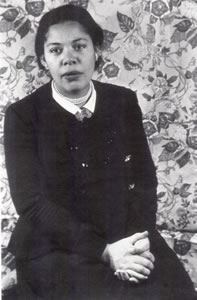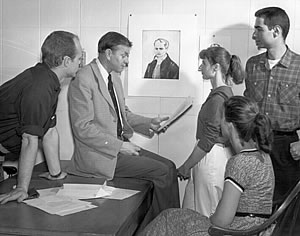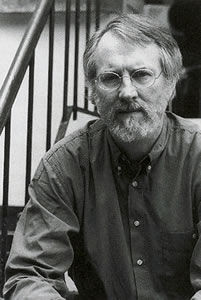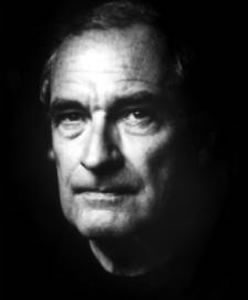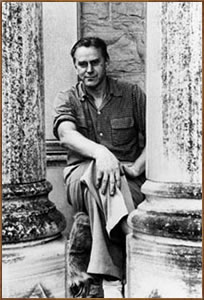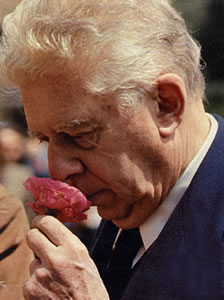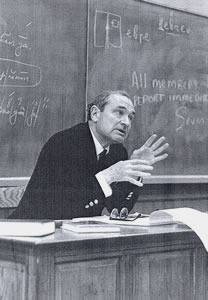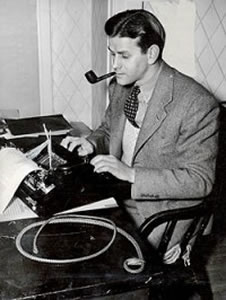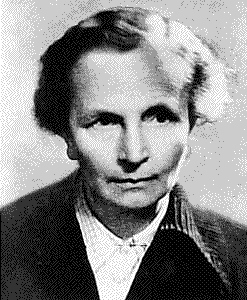Vlaams dichter en essayist Stefaan van den Bremt werd geboren in Aalst op 12 oktober 1941. Van den Bremt studeerde Romaanse filologie te Leuven en werd daarna leraar Frans en geschiedenis te Brussel. Ook werd hij medewerker en redacteur van het tijdschrift Kreatief. Zijn bezoek aan de Palestijnse vluchtelingenkampen in Jordanië in 1969 bracht hem in contact met het Palestijnse verzet en dit leidde uiteindelijk in 1974 tot een veroordeling wegens medeplichtigheid aan de Palestijnse aanslag van 1972 die hem tevens zijn baan kostte. Van den Bremt debuteerde in 1968 onder het pseudoniem Stevi Braem met de dichtbundel Sextant. Zowel in deze bundel als in de erop volgende Een valkuil in de wolken (1971) en Van het een komt het ander (1973) blijkt zijn thematiek gericht op de verhouding tussen de versimpelde weergave van de werkelijkheid en de complexheid van die werkelijkheid zelf. In zijn Dossier Latijns Amerika (1972) en in Het spel van Angèle en Adèle (1976) richt hij zich vooral op maatschappelijke en politieke vraagstukken. Zijn engagement blijkt ook uit de vertalingen die hij verzorgde, werk van Nicolas Guillén, Bertolt Brecht en Maryse Condé. In 1980 werd hem de L.P. Boonprijs voor zijn gehele werk toegekend.
Zelfportret
Ik die de nasmaak van loslippigheid
geproefd heb, en zij is te jong
en praat mijn mond voorbij en bijt
als peper op mijn tong;
ik die de vreemde kriebel van het woord
gevoeld heb als het witte blad
en zit te schrijven als vermoord
ik het, al dat wit zat;
ik die de ren van kippen zonder kop
gezien heb, en hoe oud was ik
die de stokkende harteklop
gehoord heb van de schrik? –
Ik die aan boeken en een bloem
geroken heb, en ze niet noem.
De Nachtwacht
Een klad kaal licht verloor zich in het donker
waarvan het einde zoek is voor het oog
en in de kring waarin het zich bewoog
wierp ik mijn schaduw. Als een kale jonker
barstte dat licht uit in het aardedonker
en stootte zich aan mij, want ook ik toog
op weg naar duisternis die mij aanzoog
als een planeet vol uitgeblust geflonker.
Dat patserige licht kwam er niet achter
en paste liever voor het donker. Wachter,
dat was ik, van de nacht. En wat was hij?
Een afgestorven dag. Hij rustte zachter
dan ik, die nog in dit dood taalgetij
moet waken, spraak en schrift voorbij.
Stefaan van den Bremt (Aalst, 12 oktober 1941)
De Italiaanse dichter Eugenio Montale werd geboren in Genua op 12 oktober 1896. Zie ook mijn blog van 12 oktober 2007 en ook mijn blog van 12 oktober 2008.
Een gedicht
Eis van jezelf geen woord dat onze vormeloze ziel
volkomen inlijst en in vuren letters
haar verlicht en schittert als een crocus
verloren in een grasveld grijs van stof.
De man te zijn die in zekerheid wandelt,
bevriend met de anderen en met zichzelf,
zijn schaduw is het een zorg wat de hondster
stempelt op een bladderende muur.
Vraag niet om de spreuk die werelden opent
maar om een lettergreep, knoestig en droog als een tak.
Slechts dit kunnen wij je zeggen vandaag:
dat wat wij niet zijn, dat wat wij niet willen.
Vertaald door Jan Emmens
DIE POESIE
I
Der quälend schweren Frage Walten,
ob Inspiration vom Heißen, ob vom Kalten,
hat nichts zu tun mit Wärmelehre.
Ekstase bringt nichts, Vakuum geht ins Leere…
Gedichte kommen nicht gegrillt, gefroren.
Hier werden Wörter nur geboren,
die, unverdaut und ungestüm,
nur darauf warten, zu entflieh’n
aus Küche oder Kühlbereich.
Woher sie kamen, ist ja gleich. Und kaum entfloh’n
schaun sie sich um und fragen sich auch schon:
Was tu ich nun?
II
Voll von Horror
verweigert Poesie das dumme
Wortdefinieren der Scholaren.
Doch ist es fraglich, ob dies äußerst Stumme
sich selbst genügt – sich und
dem Bühnenschieber, der vergißt
und drüber stolpert, daß nun er
der Autor ist.
Vertaald door Walter A. Aue
Eugenio Montale (12 oktober 1896 – 12 september 1981)
De Amerikaanse dichter, criticus en vertaler Robert Stuart Fitzgerald werd geboren op 12 oktober 1910 in Springfield, Illinois. Zie ook mijn blog van 12 oktober 2008.
Midsummer
The adolescent night, breath of the town,
Porchswings and whispers, maple leaves unseen
Deploying moonlight quieter than a man dead
After the locust’s song. These homes were mine
And are not now forever, these on the steps
Children I think removed to many places,
Lost among hushed years, and so strangely known.
This business is well ended. If in the dark
The firefly made his gleam and sank therefrom,
Yet someone’s hand would have him, the wet grass
Bed him no more. From corners of the lawn
The dusk-white dresses flutter and are past.
Before our bed time there were things to say,
Remembering tree-bark, crickets, and the first star…
After, and as the sullenness of time
Went on from summer,
here in a land alien
Made I my perfect fears and flower of thought:
Sleep being no longer swift in the arms of pain,
Revisitations are convenient with a cough,
And there is something I would say again
If I had not forever, if there were time.
Song After Campion
Ravished lute, sing to her virgin ears,
Soft notes thy strings repeating;
Plucked harp, whose amorous song she hears,
Tell her the time is fleeting;
Night-tide and my distress of love
O speak, sweet numbers,
That pity her heart may move
Before she slumbers.
Pale moth, that from the moon doth fly,
Fickle enchantments weaving,
Night faery, come my lady nigh
When the rich masques are leaving;
Tell her who lieth still alone
Love is a treasure
Fair as the frail lute’s tone
And perished measure.
Robert Fitzgerald (12 oktober 1910 – 16 januari 1985)
De Amerkaanse schrijfster Ann Petry werd geboren op 12 oktober 1908 in Old Saybrook, Connecticut. Zij studeerde farmacie, trok naar New York en werkte daar voor twee kranten. In Harlem kwam zij in aanraking met de armoede en de uitbuiting van de zwarte bevolking gedurende de depressie. In 1938 begon zij met het publiceren van verhalen Zij schreef ook een somber-naturalistische roman met The Street (1946). De protagoniste, Lutie Johnson, is een jonge zwarte vrouw die door haar racistische en mysogene omgeving ten onder gaat. Toch is zij een sterke vrouw die hard vecht om haar eigen lot en dat van haar zoon Bub te verbeteren. Maar de krachten waartegen ze moet opkomen, zijn al te vijandig. Hoe verbeten ze ook probeert om uit het slop te geraken, uiteindelijk moet ze zich toch gewonnen geven. Net als Bigger blijkt ze niet opgewassen tegen haar omgeving.
Uit: The Street
“She stood there thinking that it was really a pity they couldn’t somehow manage to rent the halls, too. Single beds. No. Old army cots would do. It would bring in so much more money. If she were a landlord, she’d rent out the hallways. It would make it so much more entertaining for the tenants. Mr. Jones and wife could have cots number one and two; Jackson and girl friend could occupy number three. And Rinaldi, who drove a cab nights, could sublet the one occupied by Jackson and girl friend.
She would fill up all the cots–row after row of them. And when the tenants who had apartments came in late at night, they would have the added pleasure of checking up on the occupants. Jackson not home yet but girl friend lying in the cot alone–all curled up. A second look, because the lack of light wouldn’t show all the details, would reveal–ye gods, why, what’s Rinaldi doing home at night! Doggone if he ain’t tucked up cozily in Jackson’s cot with Jackson’s girl friend. No wonder she looked contented. And the tenants who had apartments would sit on the stairs just as though the hall were a theater and the performance about to start–they’d sit there waiting until Jackson came home to see what he’d do when he found Rinaldi tucked into the cot with his girl friend.“
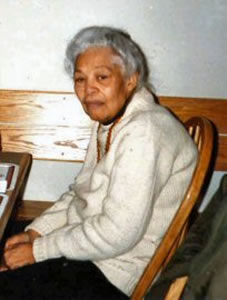
Ann Petry (12 oktober 1908 – 28 april 1997)
De Amerikaanse dichter en schrijver Paul Engle werd geboren op 12 oktober 1908 in Cedar Rapids. Zie ook mijn blog van 12 oktober 2008.
In a Bar Near Shibuya Station, Tokyo
The Japanese next to me at the bar
bites at his sake with big irregular teeth.
Behind the heavy glasses (which he wears
like an elegant suit of clothes) his eyes
are yellow as the warm wine he is drinking.
He turns like a door opening and says
with an aggressive softness, “USA?”
I nod, waiting to see the color of his mind.
“I was wounded at Okinawa.”
The words drop reluctantly from his mouth
like drops of wine from the bottom of the bottle.
I set my weight on the soles of my feet
and keep a careful eye on his hands.
he pulls up his sleeve. The scar cries out
along his arm like an exclamation mark.
What words do you speak to an accusing wound?
He looks at the scar as a man looks at a bug
crawling his skin, with interest and loathing,
wishing that it would simply go away.
“I’m sorry,” I say. The words in their silly weakness
vibrate in the vivid lamplight of the bar
before they fall to the floor with a shamed rustle.
He clenches and unclenches his fist. The scar ripples.
I lift my hands. I am ready, like a new kid
uneasy on a school ground the first day.
“American doctor fix my arm good,” he says.
And then his face collapses into a smile.
“He not fix good, I not pick up sake now.”
He lifts the blue-glazed, lovely curving cup
and gestures gently toward me. Shyly his eyes
move over mine like a friendly hand. We drink.
He puts the cup down carefully on the bar
with a brave lightness, as if it were a bomb
waiting to go off and blast his hand.
His face goes back to being merely a face.
Outside, Tokyo growls like a hunting tiger.
Paul Engle (12 oktober 1908 – 25 maart 1991)
Zie voor onderstaande schrijver ook mijn blog van 12 oktober 2008.
De Oostenrijkse dichteres en schrijfster Paula von Preradović werd geboren op 12 oktober 1887 in Wenen.










